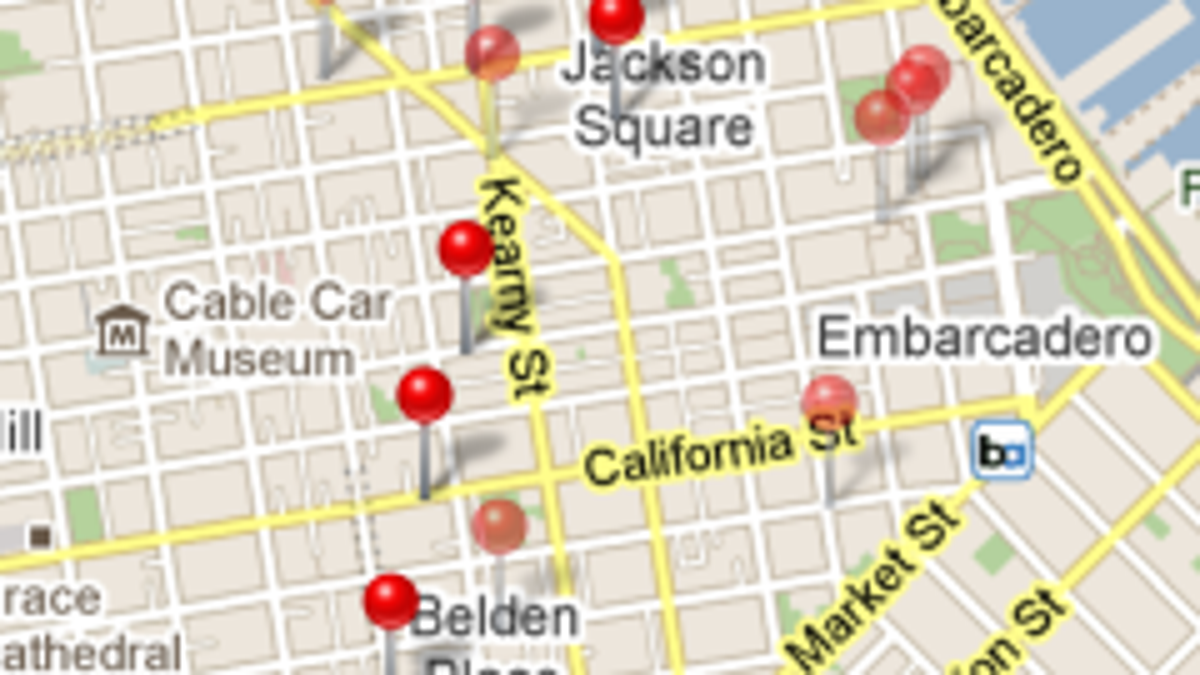Gigwalk launches spot job marketplace for people just walking around
Walking around with nothing to do? Gigwalk might be able to turn your rambling into a few extra bucks in your pocket.

There's an untapped army of workers walking around out there, and an unharvested sea of jobs for them. That's Gigwalk CEO Ariel Seidman's belief, as his company launches its open marketplace for real-world on-the-spot jobs and tasks.
The idea is this: If you need something simple done at your store or other physical location, as long as it's something almost anyone can do, you can put a job up on Gigwalk for people to grab. Example jobs include: Verifying (with a photo) the placement of a traffic sign, or evaluating the quality of service at a retailer. Jobs like that are currently in the system here in San Francisco.
Some of the jobs I saw in the preview did seem like thinly veiled guerrilla marketing efforts (watch a video on your laptop at a given coffee shop, for example). Seidman told me Gigwalk reserves the right to remove jobs it doesn't feel are appropriate.
I have yet to see what I would consider jobs of physical labor appear on Gigwalk, like "Help me load this huge dresser into my van," but there's no reason these kinds of gigs couldn't appear here as well. See also: TaskRabbit and Zaarly. Seidman says Gigwalk's primary competitor, at the moment, is Craigslist, although Gigwalk is obviously more focused and structured.
Gigwalk is primarily designed to be a marketplace for much smaller gigs, for people who might want to make a few bucks when they're out and about. Seidman says in early testing, Apple Store employees on their way to work were enthusiastic users of the service. It also seems like a nice way for people with nothing to do to make some extra money--as long as they already have enough money to have a smartphone with a data plan.
There are various checks and levels in the service. You can't accept a job unless your phone geolocates you at the right spot. All job results get evaluated by the people who requested them, and users earn "street cred" for jobs well done; some jobs can't be accepted unless you are above a certain street cred level.
In addition to limiting jobs to users with cred, posters can also request only Android or iPhone users, for example. You can't limit jobs to people by gender (which you might want to do if a job is to try on a particular item of clothing at a retailer) or other demographic, but you can ask for certain criteria in a gig posting.
It's obvious how Gigwalk makes money: It takes a cut. The minimum fee for a single job is $3. Gigwalk takes money from its posters in advance, which makes for nice, front-loaded accounting. The company launched a closed precusror to this open service a while ago, as a way for mapping customers like TomTom to assign map verification tasks out to consumers.
The service is opening up today. I have high hopes for it. It's clever, the app is well-designed, and I believe it may actually be able to tap into the genuine need that marketers and other people have to collect information from real people in the the real world. And of course it gives those people a simple way to make a little extra money. It brings Web efficiency to the real world.

